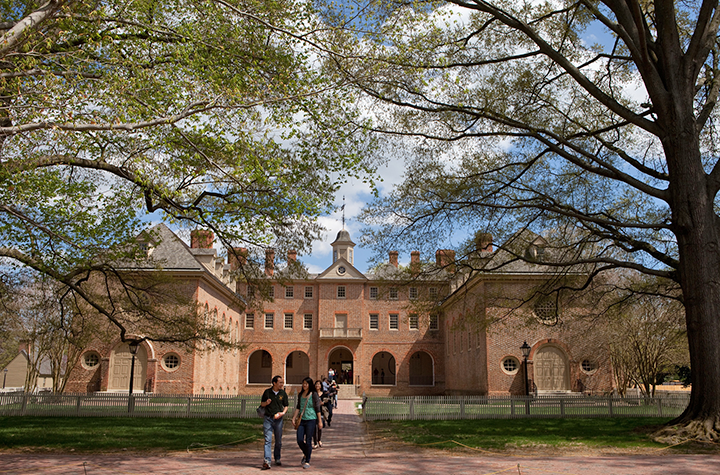Two Virginia universities recently joined a three-year, nationwide cohort that will work to prevent campus hazing.
Virginia Commonwealth University and William & Mary are the latest Virginia schools to join the Hazing Prevention Consortium, a research-based approach to hazing prevention. There are 11 schools in what is now the sixth cohort, including Princeton University and Harvard College.
This story was reported and written by Capital News Service
The consortium works with universities across the country to create specialized plans to address hazing on their campuses. It was founded by StopHazing, a research authority that uses the Hazing Prevention Framework to assess and implement safer campus practices.
Elizabeth Allan, a professor at the University of Maine and the consortium director, has been involved with hazing research and prevention for over 30 years, according to StopHazing.
She said the consortium is specific to each university.
“We provide what’s called technical assistance, or coaching and expertise to help each institution develop their own strategic plan for hazing prevention that’s tailored to their particular campus culture and the demographics of their students,” Allan said.
The partnership between the consortium and the universities includes surveys of students, site visits, interviews and focus groups, according to Allan.
The Hazing Prevention Consortium also provides universities and students with a peer network, meaning all 11 universities can communicate and collaborate with one another as they work to devise specific hazing prevention guidelines.
Adam Oakes was a VCU freshman who died in February 2021 during a fraternity pledge event. The family sued the university, and as part of the agreement, VCU has taken certain actions to prevent campus hazing.
The university has established a bystander intervention training, added a requirement that students complete a certain amount of credits before they can join an organization, and must make available a report of student conduct violations, in addition to several other things.
State lawmakers also passed “Adam’s Law” last year, which requires universities to provide education and information on hazing to student groups and also publish reports of hazing violations.
Aaron Hart, VCU vice president for student affairs, did not respond to an interview request, but the university’s public relation team attributed the following statement to Hart.
“VCU is dedicated to creating a safer campus for our students, and our participation in this consortium shows we are always dedicated to addressing this issue," Hart stated.
Other Virginia universities have participated in the consortium, including the University of Virginia and Washington and Lee University, which participated twice. Representatives of Washington and Lee did not respond to an interview request.
Susie Bruce is the director of the UVA Gordie Center, which works to end hazing and substance abuse on its campus. UVA was part of the consortium from 2013-16, along with seven other universities.
Allan approached UVA directly about joining the consortium, according to Bruce.
There are a limited number of spots for schools every period, which is why UVA did not rejoin, according to Bruce.
UVA created a hazing prevention program during its time in the consortium, according to Bruce. The university collected and assessed data before and after it joined the consortium, to help gauge student reactions and opinions in relation to hazing, Bruce stated.
The university saw improvement in their targeted areas, which led UVA to expand the program to all student groups with new member processes, Bruce stated.
The main program goals were to identify hazing behavior, understand the impact of hazing, be aware of resources to help prevent hazing, and to develop “increased motivation to intervene,” Bruce stated.
“The Consortium was extremely valuable in providing resources to guide this project, including the research framework, access to best practices from other institutions, and the opportunity to share our challenges and explore solutions with other institutions in the consortium on a regular basis,” Bruce stated.
Both chambers of Congress have introduced versions of the Stop Campus Hazing Act. The act would require universities to report hazing incidents and create education and prevention programs. The bills were introduced in late September, and are awaiting discussion in both chambers.
Capital News Service is a program of Virginia Commonwealth University's Robertson School of Media and Culture. Students in the program provide state government coverage for a variety of media outlets in Virginia.




